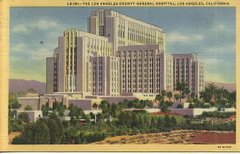The antiinflammatory mechanism of methotrexate depends on extracellular conversion of adenine nucleotides to adenosine by ecto-5[prime]-nucleotidase: Findings in a study of ecto-5[prime]-nucleotidase gene-deficient mice
Evidence from in vitro, in vivo, and clinical studies indicates that adenosine mediates, at least in part, the antiinflammatory effects of methotrexate (MTX), although the biochemical events involved have not been fully elucidated. This study was undertaken to investigate whether MTX exerts antiinflammatory effects in mice that lack ecto-5[prime]-nucleotidase (ecto-5[prime]-NT) (CD73) and are unable to convert AMP to adenosine extracellularly, in order to determine whether adenosine is generated intracellularly and transported into the extracellular space or is generated from the extracellular dephosphorylation of AMP to adenosine.Male CD73 gene-deficient mice and age-matched wild-type mice received intraperitoneal injections of saline or MTX (1 mg/kg/week) for 5 weeks. Air pouches were induced on the back by subcutaneous injection of air; 6 days later, inflammation was induced by injection of carrageenan.Fewer leukocytes, but higher levels of tumor necrosis factor [alpha] (TNF[alpha]), accumulated in the air pouches of vehicle-treated CD73-deficient mice compared with those of wild-type mice. As expected, MTX treatment reduced the number of leukocytes and TNF[alpha] levels in the exudates and increased exudate adenosine concentrations in wild-type mice. In contrast, MTX did not reduce exudate leukocyte counts or TNF[alpha] levels or increase exudate adenosine levels in CD73-deficient mice.These results demonstrate that the antiinflammatory actions of MTX are mediated, at least in part, by increased release of adenine nucleotides that are hydrolyzed extracellularly to adenosine via an ecto-5[prime]-NT-dependent pathway.
!This is Dr. Horwitz's favorite question!
Los Angeles County Hospital

Monthly Paper Selection
Journal RSS (FEEDS):
By following the link below, you will be redirected to my Bloglines website. I set up a page with FEEDS from the main Rheumatology Journals, Internal Medicine Journals and Immunology Basic Science Journals:
http://www.bloglines.com/public/brunostoliver
In addition, I made available some FEEDS from Rheumatology Journals below, but be aware that this is not a complete list of each Journal issue. To get the complete list, click in the link above and you will be redirected to bloglines.com
Medscape Rheumatology Headlines
Physician's First Watch: Current Issue
Arthritis & Rheumatism
Annals of the Rheumatic Diseases current issue
Rheumatology - current issue
Current Opinion in Rheumatology - Current Table Of Contents
CER - Recent Issue
Arthritis Research & Therapy - Latest articles
JCR: Journal of Clinical Rheumatology - Current Table Of Contents
Nature Clinical Practice Rheumatology
Lupus current issue
Journal Links (Blogroll from Bloglines)
Rheumatology Journals Schedule
- Arthritis and Rheumatism: Monthly
- Annals of Rheumatic Disease (The EULAR Journal): Monthly
- Journal of Rheumatology: bi-weekly (only e-mail TOC/no RSS)
- Rheumatology (Oxford): Monthly
- Current Opinion in Rheumatology (COR): 6 issues/year (bi-monthly)
- Clinical and Experimental Rheumatology (CER): 6 issues/year (bi-monthly)
- Arthritis Research and Therapy: 6 issues/year (bi-monthly)
- Journal of Clinical Rheumatology: 6 issues/year (bi-monthly)
- Scandinavian Journal of Rheumatology: 6 issues/year (bi-monthly) !No issues since July 2006
- Rheumatic Disease Clinics of North America: (4-5 reviews/year): Receive e-mail TOC. No RSS.
- Seminars in Arthritis and Rheumatism: 6 issues/year (bi-monthly)+ 2 Supplements: Receive e-mail TOC. No RSS.
- Nature Clinical Practice Rheumatology: Monthly
- Lupus Journal: Monthly
Internal Medicine Journals Schedule
- Archives of Internal Medicine: Bi-weelky (Monday)
- Annals of Internal Medicine: No RSS available: Bi-weekly (Tuesday) (only e-mail TOC)
- JAMA: Weekly (Wednesday)
- NEJM: Weekly (Thursday)
- Lancet: Weekly (Friday)
- British Medical Journal: Weekly (Saturday)
Monday, May 14, 2007
Subscribe to:
Post Comments (Atom)





No comments:
Post a Comment